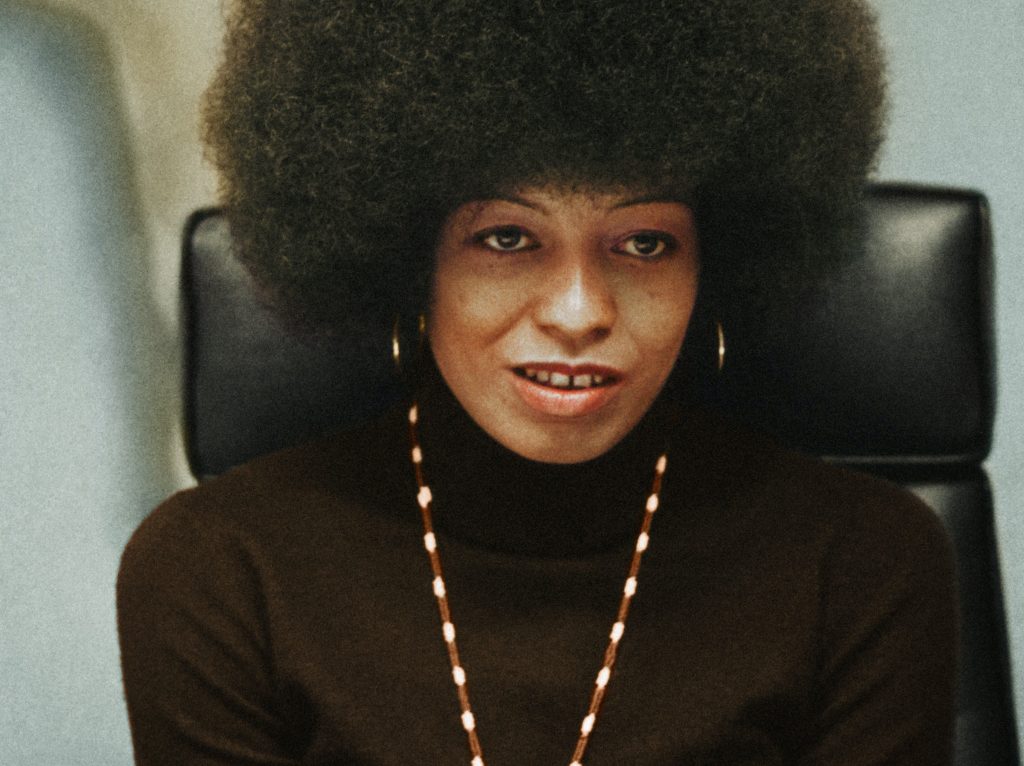By Lori Lee
NDG Contributing Writer
Domestic violence is the most widespread pandemic form of violence in the world, explained Angela Davis, yet it has not changed much over the last half century. Davis spoke at a forum on domestic violence sponsored by Blue Shield California Foundation and the Black Freedom Fund last month. Davis said she became interested in domestic violence when it surfaced as a political issue in the seventies.
Domestic violence has been in most human societies for hundreds of years, said Davis, but it is hidden. With a great deal of silence surrounding the issue, the violence has been described as a natural part of human relationships, with no real solution except escape, she said. Davis wanted to change this frame, proposing that violence does not have to play a part in human relationships.
Davis wrote a book about the subject called “Blues Legacies in Black Feminism.” In listening to Black women blues singers, Bessie Smith, Ma Rainey, Ida Cox, Edmonia Henderson, Davis said she heard many songs about violence and what was happening to them in their relationships.
Davis’ political activism began as a youngster in Birmingham, and it continued through her high school years in New York. Since her fight to free the Soledad Brothers, which led to her imprisonment, Davis has been an activist committed to prisoners’ rights and racism in the criminal justice system.

Her social activism drove her underground after false charges were filed against her in 1970. Sixteen months later, a massive “Free Angela Davis” campaign led to her acquittal. Davis has worked much of her life to combat oppression of all kinds. As a living witness to the historical struggles of the contemporary era, Davis says we have made progress that would have been unimaginable when she was growing up.
“I don’t know whether I’ve ever experienced a moment when vast numbers of people were so politically engaged, vast numbers of people were so concerned about the future of our planet, concerned about the climate, concerned about war, concerned about ending racism,” she said. This is a period unlike any other in the history of this country. We’re making progress! I feel very hopeful.”
Senator Susan Rubio is one of those agents pushing for change. Elected to the California Legislature in 2018, Rubio is a survivor of abuse, who authored 26 bills to protect victims of domestic violence. The legislature moves slowly, said Rubio, but there are a lot of good people involved in the fight.
Domestic violence is a leading driver of female homelessness, with 57% of unhoused women reporting violence as an immediate cause, according to the National Network to End Domestic Violence.
Rubio penned what became the HELP Act, which passed the California Legislature in 2022. The Act will reduce gender bias by embedding in homelessness plans a focus on the often overlooked survivor of domestic abuse. The legislation requires that state-funded continuums of care employ a gender equity lense and establish clear goals for prevention to be measured and tracked. The Act protects those who end up on the street with their children after maximizing shelter stays, which are often limited to 45 days.
Prior to HELP, Gov. Newsom signed the Phoenix Act, which extended the statute of limitations for domestic violence felonies from three to five years. The Act allows domestic violence survivors more time to heal before seeking justice, said Rubio, who wrote the initial bill. Victims can have posttraumatic stress for up to nine years after an event, making them defenseless due to the trauma. Rubio proposed the legislation after hearing a woman who was tied up for four days without nourishment. Though she had audio/video of crime, she wasn’t able to gather the evidence within the three-year time limit. Though the senator fought for a 12-year extension, the bill was negotiated down to five.
Victims are missing the mark because they’re not coming forward soon enough, explained Rubio. People need to know there’s a support system to help them safely walk out of high-risk situations. For Immigrants threatened with immigration status, victims of domestic violence can stay in this country and be protected under visas. Many are unaware these protections exist.
Tina Swithin has been working to get the information out there to help people navigate a rough system. After suffering financial abuse, she fought her way through the legal system on her own. Cut off from funds and forced to act as her own attorney, she typed her first documents from a shelter, successfully obtaining a restraining order. To protect her daughters, she became a fixture at the courthouse, she said, observing cases similar to her own.
When CPS labeled her husband a “moderate” risk and allowed regular visitation, she fought back, and after re-evaluation, his parental rights were terminated.
After her children suffered six years of abuse under an imperfect system, Swithin became an advocate for change in the family court system. She has been active, chronicling her journey and supporting bills to help victims. And for over a decade, she has built the resources and support she said she wished she had had during her trials. She promotes awareness through her blog and through her campaign to convince states to adopt Family Court Awareness Month. For more information, visit onemomsbattle.com.




